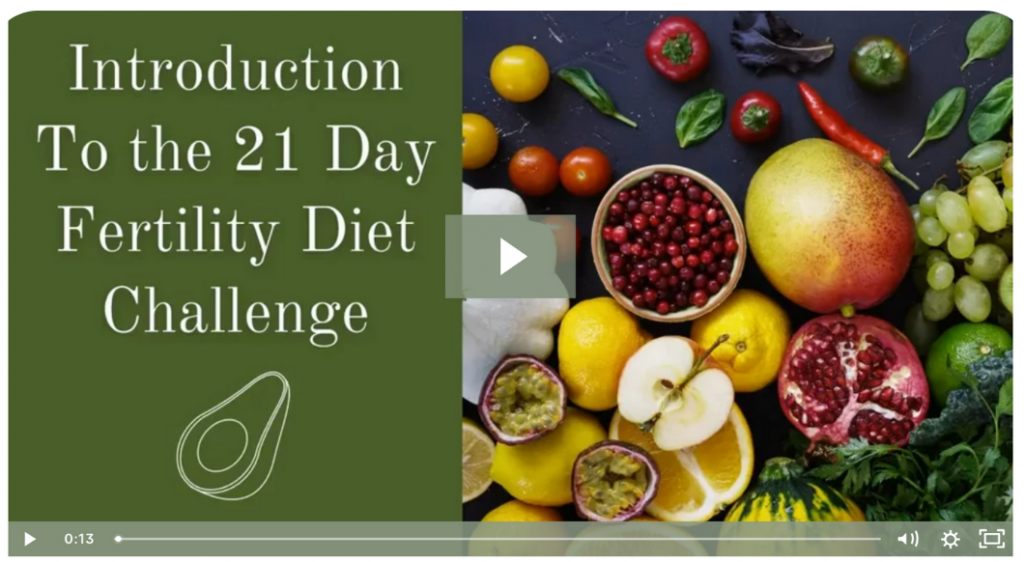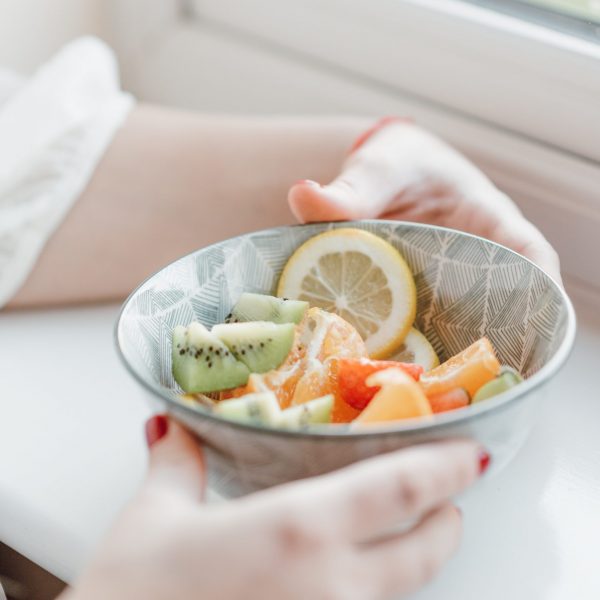We know women with endometriosis benefit by making dietary changes. It’s important to focus on eating organic foods and a plant-based Fertility Diet. A new study shows that fruit and vegetable choices and digestive health make a big difference in your endometriosis risk.
Endometriosis affects up to 10% of women. Today, more women are taking charge of their own health if they are at risk. Medical treatments like hormone-blocking medication and laparoscopic surgery are options some women pursue. Still, many women want to try natural approaches, especially if they are planning to try to conceive down the road.
The Role of Digestion in Endometriosis: We don’t completely understand all of the factors that lead to endometriosis. We’re learning more all the time. Family history, hormone imbalance, immune dysfunction, inflammation and retrograde menstruation are all believed to be involved in endometriosis onset. Research is showing your digestive health and the foods you eat are two other critical factors.
Nurses’ Health Study II: Endometriosis Risk
A 2018 study published in the journal Human Reproduction found daily intake of citrus fruits decreased risk of endometriosis by 22%. Strangely, the study showed a daily intake of cruciferous vegetables increased endometriosis risk by 13%. Intake of corn, peas and lima beans was also found to increase risk.
Making sense of the study findings:
There’s no question that the findings were surprising. Many of the foods studied are thought to be good for women with endometriosis. So, what’s the story?
In Natural Medicine Journal, Lorenda Sorensen ND, LA.c, and Haley Doherty comment that a common link between the foods that increased endometriosis risk in the study is that they contain fermentable constituents* linked to gastrointestinal (GI) inflammation.
Fermentable constituents commonly lead to gas, bloating and GI stress. This is especially true if digestive health is weakened or you’re not used to them. We often see these symptoms when someone makes a dramatic diet change, like switching to a raw foods or vegan diet.
Study authors also noted that it’s possible the increase in digestive symptoms may have led to more visits to the gynecologist, which then led to an increase in the diagnosis of endometriosis.
Do You Stop Eating Certain Plant Foods?
In my opinion, you don’t need to stop eating a variety of healthy, whole foods. Citrus fruits, cruciferous vegetables and beans can be eaten if you have endometriosis. Most importantly, you want to pay close attention to how you’re digesting the foods you eat. Even healthy foods can cause problems for fertility health if you don’t digest them well. Gut health has been linked to endometriosis by practitioners and in studies over the years (Digestive & Liver Disease, 2018).
Even though gut health has been linked to endometriosis by practitioners and in studies over the years (Digestive & Liver Disease, 2018), this it is just one study. Many natural health practitioners learn women with endometriosis feel much better when they move towards a plant-based diet.
My closing thoughts…
If you’re new to the Fertility Diet and are not used to eating a lot of fiber or fruits and vegetables, start slow. Work your way up to your goals. Start with the fruits and vegetables that are easiest for you to digest. Add prebiotic and probiotic foods or supplements to give your digestive system extra support.
If you have a history of digestive problems or irritable bowel along with endometriosis, consider working with a naturopath or Fertility Herbalist for guidance on the best diet for you. Your gut health plays a big role in your fertility!
Remember: You are not only what you eat, but how you digest the foods you eat as well!
Watch The Introduction to the 21 Day Fertility Diet Challenge
- Learn how to transition to a natural fertility diet by focusing on the important 5
- Get all the details on how to use nutrition as a tool for hormonal health, cell protection and fertility wellness
- An effective tool to help your tastebuds transition towards healthier foods
- Learn which foods are most important for fertility and how to regularly eat them

More resources:
Endometriosis and Its Link to the Microbiome
Symptoms to Share With Your Doctor if You Suspect Endometriosis
Gut Health and the Microbiome Connection to Optimum Fertility
*oligosaccharides, disaccharides and monosaccharides
- Gerlinger, C. et al. (2012, April). Treatment of endometriosis in different ethnic populations: a meta-analysis of two clinical trials. BMC Womens Health; 12: 9. doi: 10.1186/1472-6874-12-9. Retrieved from: https://www.ncbi.nlm.nih.gov/pmc/articles/PMC3470994/
- Harris HR, Eke AC, Chavarro JE and Missmer SA. (2018). Fruit and vegetable consumption and risk of endometriosis. Human Reproduction; 1-13. Retrieved from: https://reference.medscape.com/medline/abstract/29401293
- Sorensen, L. and Doherty, H.. (2018, Aug.). Do Cruciferous Vegetables Contribute to Endometriosis? Retrieved from: https://www.naturalmedicinejournal.com/journal/2018-08/do-cruciferous-vegetables-contribute-endometriosis
- Viganò D, Zara F and Usai P. (2018, Mar.). Irritable bowel syndrome and endometriosis: new insights for old diseases. Digestive and Liver Disease; 50(3):213-219. Retrieved from: https://www.sciencedirect.com/science/article/pii/S1590865817313348





